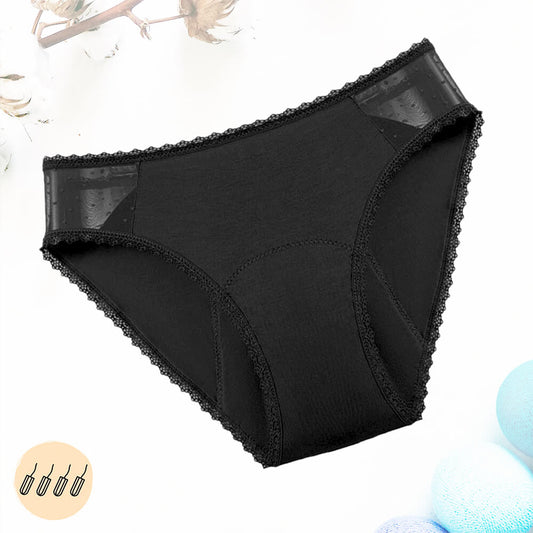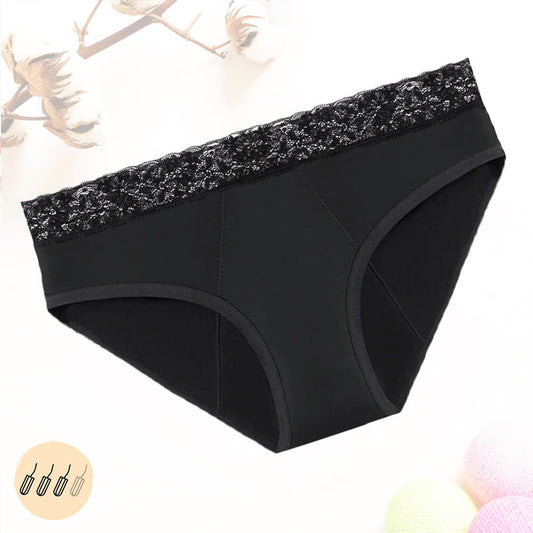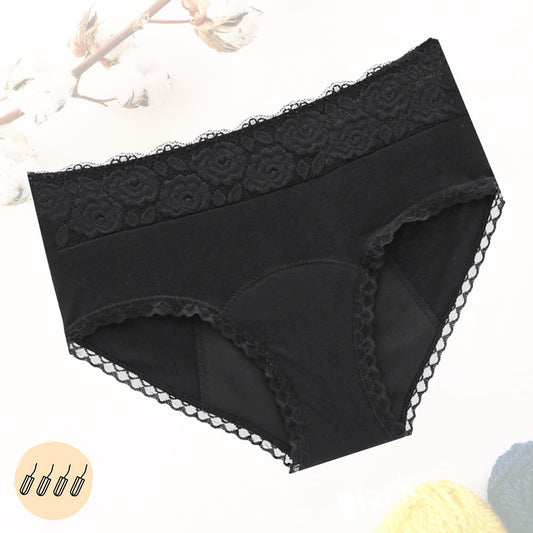 So you think you know everything about the rules? Periods are an essential part of every woman's life. No matter how familiar you are with the subject, there's always something to learn, especially about the more unusual facts and weird statistics about menstruation. We have collected some of the facts below the most unexpected on the rules.
So you think you know everything about the rules? Periods are an essential part of every woman's life. No matter how familiar you are with the subject, there's always something to learn, especially about the more unusual facts and weird statistics about menstruation. We have collected some of the facts below the most unexpected on the rules.
Your Periods Get Worse When It's Cold
This is a surprising fact, but the cold can have an impact on your periods, making them more abundant and longer than normal. During the winter months, a woman's flow, period length, and even her pain level are longer than in the summer. This trend also applies to women who live in colder climates. The seasons can also have an impact on mood. Rainy and shorter days can have a negative effect on mood when combined with female reproductive hormones. This is thought to be caused by a lack of sunlight, which helps our bodies produce vitamin D and dopamine. Two substances that both boost our mood, our concentration and our general state of health.
You Can Get Pregnant Even When You're On Your Period
It's a less surprising fact, but one you should probably know. Many people think that you cannot get pregnant during your period. However, this is not true. Although it is more unlikely to get pregnant during your period, it is not at all impossible. Indeed, sperm can survive in the body for five or six days. If you have a relatively short cycle, which you have having sex near the end of your period and that you ovulate right after the end of these, you could get pregnant.

The Average Age When Menstruation Starts Has Changed Over The Years
Did you know that over the past few centuries the average age at which a girl starts menstruating has changed? In the 1800s, girls did not menstruate until they were well into their teens, the average age was about 17 years old. Today, the average age of onset of menstruation is 12 years old, five years younger.
Scientists believe there are a few key reasons for this: better nutrition. We eat better and more than our ancestors. Since fat cells make estrogen, the more fat cells you have, the more estrogen you have in your body, which can trigger the start of your menstrual cycle. Increased stress levels are also a factor. In effect, a high level of stress can actually trigger the start of your period.
A Woman Spends Nearly 10 Years Getting Your Period
From her first cycle to menopause, an average woman will have about 500 periods in her lifetime. That makes a lot. If you add it all up, that number equals approximately 10 years or 3 days of a woman's life. Translated into products for menstruation, this represents approximately 11 pads During his life. Of course, every woman is different.
From cycle length to breastfeeding duration, many things can influence the number of times a woman will have her period in her lifetime. But one thing is certain: periods have an impact on our lives. This is why it is important that we have associations like Elementary Rules which are committed to providing hygienic products to people who lack them.
Getting Zero Waste Periods Is Easy With Period Panties
 There are many ways reduce your waste. Use period panties to Period Panties Thongs is a great way to get your period while respecting the environment. Disposable tampons and sanitary napkins (which are mostly plastic) are no longer the only options available. Nowadays, there are all kinds of durable products that you can wash and reuse for years, such as cups but especially Period Panties. We have moreover created a collection of Period Panties washable, reusable and waterproof that absorbs your period like a sanitary napkin (they support the busy days) leaving you dry and safe from leaks or stains. A few pairs of period panties save you the hassle of constantly shelling out money for tampons and sanitary napkins. Still a great reason to switch to period panties.
There are many ways reduce your waste. Use period panties to Period Panties Thongs is a great way to get your period while respecting the environment. Disposable tampons and sanitary napkins (which are mostly plastic) are no longer the only options available. Nowadays, there are all kinds of durable products that you can wash and reuse for years, such as cups but especially Period Panties. We have moreover created a collection of Period Panties washable, reusable and waterproof that absorbs your period like a sanitary napkin (they support the busy days) leaving you dry and safe from leaks or stains. A few pairs of period panties save you the hassle of constantly shelling out money for tampons and sanitary napkins. Still a great reason to switch to period panties.
You Lose Much Less Blood Than You Think During Your Period
Although it may seem like a lot to you, your body actually only loses three tablespoons of blood approximately during menstruation. Some women may even lose between a tablespoon and a small cup of blood during a normal period.
If you feel like you lose a lot of blood during your period, you may have very heavy periods that require consultation with a healthcare professional. Too much blood loss may increase the risk of anemia and lead to dizziness, fatigue or poor blood circulation.
Your period can affect your health and your sense of smell
According to the researchers, women's voice may change slightly during the menstrual cycle due to the action of our hormones on the vocal cords. This means that women may have a different voice during their period. The same female sex hormones also affect your natural smell, which means you smell differently when you are on your period.
Rather, it's an animal phenomenon, taking us back to the days of the caveman, where men were more attracted to women who were ovulating rather than menstruating (meaning they could procreate ).




